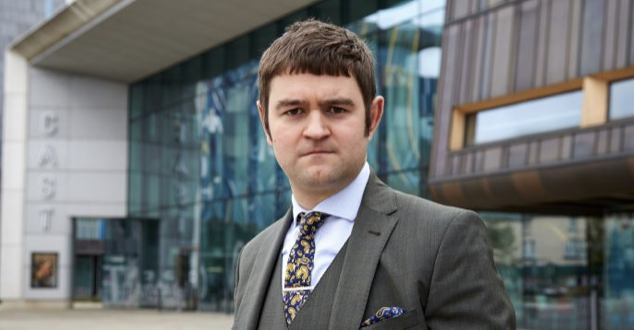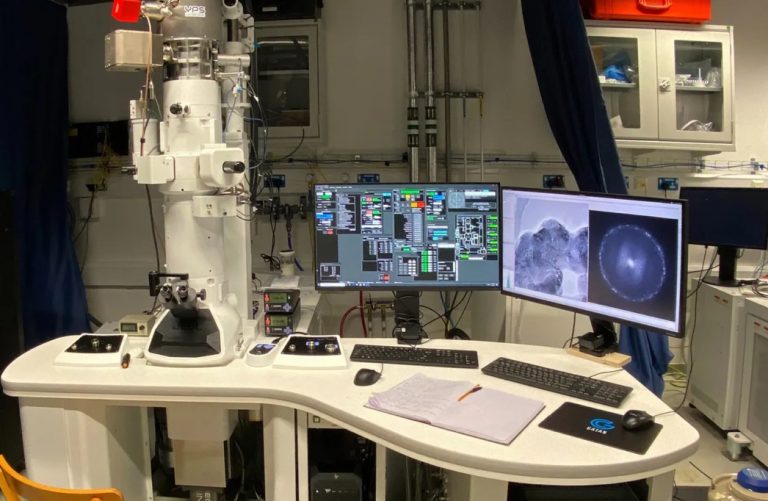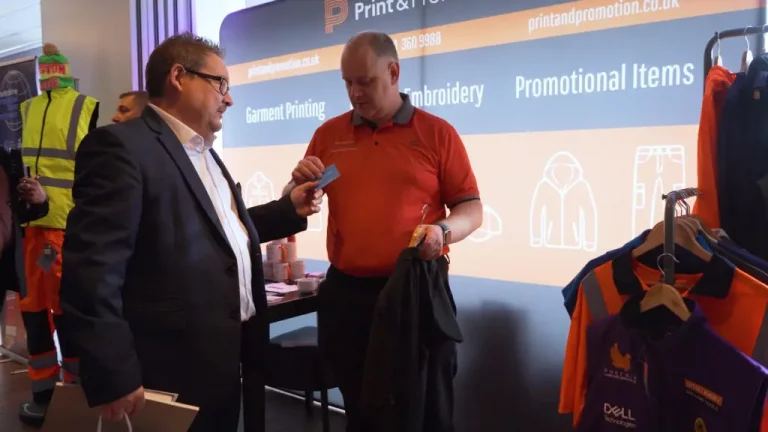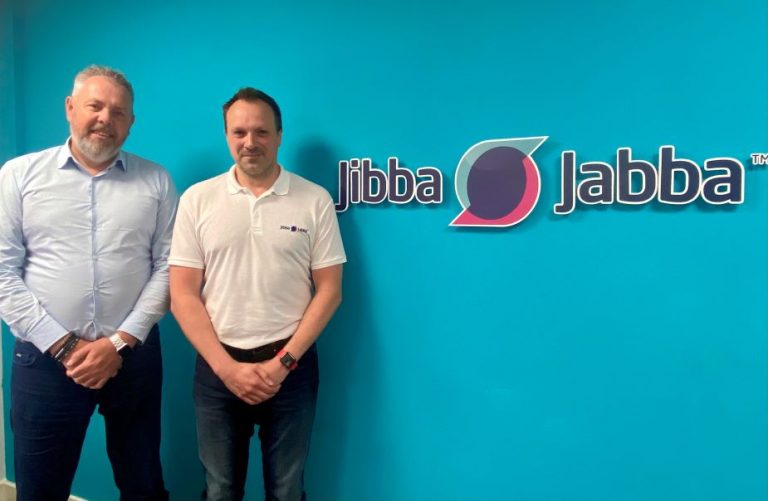- Shopping (61% of respondents) and Food/Drink (47%) were the most common reasons cited for visiting the city centre followed by the Transport Interchange (36%), Leisure & Culture (33%), and the Market (30%).
- 65% of respondents said the quality and variety of the shopping and retail offer was extremely important to them.
- The biggest concern raised by people of all age groups was safety and security. When asked how safe people felt when visiting the city centre, 51% said they felt very or somewhat unsafe.
- However, people who visited the city centre regularly, or have visited more recently, were much more likely to feel safe there, with 86% of people who say they never visit the city centre saying they feel unsafe when visiting. 78% of people who have not been to the city centre for more than a year said that feelings of safety and security impacts their decision whether to visit.
Cabinet approves creation of new Doncaster city centre 25-year masterplan
Cabinet members at City of Doncaster Council have approved the creation of a new city centre masterplan and the submission of proposals to Government for the first three years of Long-Term Plan for Towns (LTPT) funding.
The strategy, which is due to be completed by the end of 2024 and will outline plans for the city centre until 2050, also includes the planned use of existing and potential funding opportunities, including the LTPT funding and Levelling Up Partnership (LUP) funding.
Since 2016, the city centre has been following the Urban Centre Masterplan, however a number of challenges, including COVID and the national issue around retail, as well as the positive impact of Doncaster becoming a city, have meant that a new masterplan to guide the future of the city centre is needed.
Mayor of Doncaster, Ros Jones, said: “As the North’s newest city, and with the national challenges over the past few years, it became obvious that we needed to review the direction of the city centre and we now have the opportunity with funding, to tackle this head on.
“As part of this, we launched the ‘Big City Conversation’ a consultation survey aimed at residents and businesses to understand their views of the city centre and what they would like the city to offer. I want to thank over 8,000 people who took part as this has presented findings which will be fundamental to the creation and delivery of the strategy.”
The Big City Conversation, which was held as an online survey and face to face focus groups, had over 8,000 respondents and found the following headlines:
New Government must turn good intentions into action, says Doncaster Chamber Chief Exec
Doncaster Chamber has applauded the new Government for signalling that it’s listening to business, but adds it’s now vital to turn good intentions into action.
Dan Fell, Chief Executive of Doncaster Chamber, said: “Many of the measures announced in yesterday’s speech are sure to be welcomed by the business community, although the devil is, necessarily, going to be in the detail.
“Labour’s commitment to an Industrial Strategy, for example, should help to foster an environment conducive to business success and it feels like some of the groundwork for that has already been laid with some of the other headline announcements. In particular, the various bills related to planning reform, getting Britain building, and enabling big-ticket investments through the National Wealth Fund are all encouraging to see, particularly for sectors like construction.
“On the other hand, some pieces of the jigsaw seem to be missing. One notable omission is that we are still uncertain about how the Government plans to grow a stronger manufacturing base in our country, despite this being so obviously critical to the nation’s growth and to the future of places like Doncaster. Similarly, we do not yet have a clear sense of how the Government will work to support and encourage exporters.
“On the subject of changing employment rights, we would like to remind Westminster that most UK businesses are in fact SMEs, and typically very responsible ones at that. If they are over encumbered with too much red tape, then there is a real possibility that they could become risk averse when it comes to recruiting new employees, with this having a detrimental effect on the labour market. We therefore urge Government not to design agility out of the system and to make sure that employers still have the flexibility they need when it comes to recruiting talent.
“Elsewhere, we are hearted to see the King’s Speech putting a lot of stock in devolution — which will help regions like South Yorkshire take greater control of their economic destinies — and we hope this can be taken as a sign that Westminster is keen to develop more mature relationships with places. Of course, it is then incumbent on places like South Yorkshire to use those devolved powers effectively.
“I suspect many businesses will be agnostic about whether the UK’s buses and railways are privately or publicly owned. What is important — particularly for the legions of businesses and 15,000 workers in Doncaster’s rail engineering industry — is that there is a long-term plan to sustainably invest in the UK’s infrastructure, especially in the North of England, and an end to the prevarication that has characterised schemes like HS2 in the past.”
Leeds Rhinos sign up for partnership with digital marketing agency
Leeds Rhinos are to partner with digital market agency Spike to develop a new digital marketing strategy aimed at increasing attendance and attracting a wider fanbase to the Super League club’s fixtures.
Spike will deliver a cutting-edge digital strategy for the eight-time Grand Final winners, focusing on engaging a new generation of fans at AMT Headingley Rugby Stadium.
Over three months, the agency will utilise its bespoke strategy framework to enhance Leeds Rhinos’ digital marketing efforts towards connecting with younger, emerging audiences.
The agency will conduct workshops to identify fan goals, set ambitious marketing objectives aligned with business challenges, and provide tactical planning toolkits. These resources, along with the final strategy documents, will enable seamless execution of recommendations.
Rob Powell, director at Spike, said: “Our team is incredibly excited to collaborate with Leeds Rhinos. By leveraging our strategy framework and innovative segmentation approach, we aim to craft a fresh marketing strategy that will not only increase ticket sales but also build a stronger connection with younger fans. This project is a fantastic opportunity for us to showcase our expertise in sports marketing and to help Leeds Rhinos achieve their goals.”
Matt Adams, head of marketing at Leeds Rhinos, aded: “From our initial meeting it was clear they had a deep understanding of the unique challenges we face as a club. We are confident that their strategy will bring a new perspective to our marketing efforts and drive real results in attracting new fans to the stadium.”
York microscope pioneer wins financial support
York Probe Sources is leading the way in cutting-edge microscope technology thanks to support from City of York Council and the York and North Yorkshire Growth Hub.
The Poppleton-based business makes parts for powerful electron microscopes, which use electron beams to generate high-resolution images of samples as small as viruses and nanofibres.
Since 2023, YPS Director Omar El-Gomati and his team have been supported by the council’s Business Growth Manager, Louise Saw, who has provided the business with advice on their next steps to growth – including taking on more staff and expanding into new premises – and helped them access finance and training.
Louise referred YPS to Mike Pennington, a Business Relationship Manager at the York and North Yorkshire Growth Hub, who helped the business secure £20,000 in grant funding from the national Made Smarter scheme to scale up their business. The grant covered half of the cost of a new machine to automate making field emitters – the part of the microscope which produces and emits a beam of electrons. Until now, this process had been undertaken by older machines in a slow and delicate process which could only produce one unit at a time and which had a high failure rate.
Investing in the new machine has made the manufacturing process more productive and efficient, by allowing multiple units to be produced simultaneously whilst helping to reduce costly waste.
AESSEAL signs up with South Yorkshire football club to support children’s hospice
AESSEAL has signed up for a second year as a Diamond Partner of Rotherham United FC in helping support and publicise Bluebell Wood Children’s Hospice.
For the 24/25 season, the hospice will be featured on RUFC team shirts, in the space normally given over to commercial advertising or sponsorship, in a deal supported by AESSEAL and the club’s other Diamond Partners including Hughie Construction, IPM Group, Mears Group, and Steelphalt. AESSEAL will gift Bluebell Wood Children’s Hospice all the hospitality and other benefits that are part of the sponsorship package. The hospice provides invaluable care and support to children and young adults with life-shortening and life-threatening conditions. Says Josie Lewis, IT and Project Manager of AESSEAL and a lifetime Rotherham supporter:“Rotherham United and its associated charitable arm, the Rotherham United Community Trust, are a great community asset it is for Rotherham, and AESSEAL is proud to associate our brand with them. “Through this partnership we aim to increase awareness and support for worthy causes like the hospice, ensuring they can continue to make a difference in the lives of those who need it most.”AAB adds two members to its Leeds team
AAB has appointed two new team members based in Leeds, where Patrick Lynch joins as Corporate Finance Partner, alongside Harris Jones as Corporate Finance Manager.
They’ll be based in the Sagars office on St Paul’s Street after Leeds-based accountancy firm Sagars merged with AAB in 2021, in a move that deepened the breadth and depth of services they provide to businesses and individuals in the North of England and across the UK.
Patrick, who brings more than 14 years’ experience in professional services, spent almost a decade at an independent corporate finance firm based in Yorkshire. His experience encompasses both buying and selling roles on transactions, on behalf of SMEs and private equity firms based throughout the UK.
Patrick joins six other Partners and Directors in AAB’s corporate finance leadership team across the UK and Ireland.
Throughout the past seven years as a Corporate Finance Advisor, Harris has amassed significant experience in advising shareholders, management teams, and institutional investors within the mid-market, most recently in the M&A team of a global environmental consultancy group. He combines this role with being a Lecturer of Finance within the Accounting and Finance subject group at Leeds Business School.
Head of Corporate Finance Gordon Steele said: “Welcoming both Patrick and Harris to the team is another key milestone for us. The AAB corporate finance team is well-established in Scotland, and across the Island of Ireland, and we’re delighted to offer these enhanced services to the North of England. The experience and expertise of both Patrick and Harris will add significant value to our already market leading team.”
James Hunt, Head of Leeds, added: “Since Sagars joined the AAB Group we have introduced an enhanced range of services to support our clients across the North of England. With both Patrick and Harris joining our team here in Leeds we are excited about the addition of end-to-end corporate finance services to the expanding offering we deliver locally, to benefit our clients both now and in the future.”
Leeds agency appoints Beth in Account Manager role
Leeds-based communications agency Yasper has appointed Bethany Lunt as an Account Manager to help drive the business forward and lead on some of Yasper’s new accounts across multiple sectors, including property and construction, healthcare, and telecoms.
She joins the business as a strategic communicator with a wealth of agency experience in media relations, content, and digital, across a range of B2B industries.
The appointment coincides with Yasper’s recent client win with Manchester-based property firm BR2.0 to deliver a media and content brief across its group of companies, as well as a landmark new piece of work in the healthcare sector.
Julian Pearce, Founder and MD at Yasper, said: “This hire is of great strategic importance to Yasper’s growth, and I was immediately impressed with Bethany’s knowledge, experience and capability. Not only will she take a lead on delivery for a range of Yasper’s key accounts, but she will be integral to the future growth and direction of the business. She’s a great fit for the agency and will be a brilliant addition to the team.”
Beth will also be focusing on Yasper’s sub-brand, Y-content, with an aim to deliver a range of fixed-price content solutions, including social media, copywriting and web services.
Beth added: “My role with Yasper feels like the natural next step in my career. From my initial chat with Julian, it was obvious we shared the same ethos in terms of what it means to deliver true value-driven comms for clients.
“Getting under the skin of clients’ businesses and truly understanding the sectors they work in is the key to producing high quality and impactful communications. As Yasper continues to grow, I’m excited for my role to evolve, I’m looking forward to working alongside the team at Umpf too.”
Barnsley Chamber prepares for re-run of free Manufacturing Supply Chain Expo
Barnsley & Rotherham Chamber of Commerce is to repeat the free Manufacturing Supply Chain Expo for 2024 on Wednesday, 9th October at the Holiday Inn, Rotherham.
The event will offer a unique opportunity for manufacturing contacts to explore a wide range of suppliers, creating a place for networking and contact building in a key industry for the Rotherham and Barnsley region.
Shane Young, Operations Director of Barnsley & Rotherham Chamber, said: “We are thrilled to host the Manufacturing Supply Chain Expo once again. This event is crucial in connecting local businesses, enhancing collaboration, and driving growth within our region’s manufacturing sector. By bringing together key players from across the manufacturing supply chain, we aim to create an event where partnerships can form, and local businesses can meet valuable new contacts.”
Visitors will also be able to gain insights from experts sharing their views on the latest trends, challenges, and innovations within the manufacturing supply chain. The expo will feature a variety of stands representing a broad spectrum of local manufacturing supply chain organisations. This setup will enable manufacturers to engage directly with suppliers, discuss potential collaborations, and discover ways to support each other in achieving business objectives.
Yorkshire food group gobbles up cheesecake maker
Yorkshire-based food group, Regal Food Products Group Plc is set to boost its chilled desserts offer with the acquisition of artisan cheesecake makers, Love Cheesecakes.
Based in Lancaster, Love Cheesecakes specialises in handcrafting over 100 premium cheesecakes for wholesale, food services and the hospitality sector.
Focusing on single serve and canapé style cheesecakes, the bakery also sells directly to consumers through event catering, attending festivals and other large outdoor events.
In 2020 Love Cheesecakes appeared on the popular television show, Dragons’ Den, giving the artisan bakery a step on the online ladder. The bakery now also holds a strong online presence through several ecommerce platforms in which it operates. With a strong focus on gifting, the service allows customers to indulge in doorstep desserts at home.
Since the acquisition of Just Desserts Yorkshire in 2022 and more recently Love Handmade Cakes, the Regal Group have strategically focused on growing and developing their desserts range in the food service and wholesale market.
Younis Chaudhry, CEO of Regal Food Products Group, said: “The acquisition of Love Cheesecakes will further strengthen our chilled desserts portfolio allowing us to give customers a solid offer across all ranges and price points.
“With a catalogue of over 100 products, there will be plenty of opportunities for new product developments, giving us the platform to bring a whole new range of exciting flavours and combinations to customers old and new.
“As a group we have the resources and infrastructure in place to bring Love Cheesecakes in line with our vision and family of dessert brands and look forward to integrating the bakery and its assets into one of our existing manufacturing sites.
“This strategic step will further strengthen our growth and open up opportunities in the chilled desserts category.”
James Asquith, founder of Love Cheesecakes, adds: “This acquisition marks an exciting new chapter for the Love Cheesecakes, promising tremendous growth and innovation. I am confident that Regal Food Products Group’s expertise and resources will take the bakery to new heights, reaching even more customers and continuing to deliver the quality and values we as a business stand for.”
The acquisition of Love Cheesecakes was advised by Mills & Reeve LLP.
Alex Kenworthy, Partner at Mills & Reeve LLP, said: “It’s a real pleasure to be part of the Regal story in helping them grow with the acquisitions of Love Cheesecakes and Love Handmade Cakes. You only have to follow them on social media to see the passion, pride and enthusiasm they have for their brands. Regal is a real gem in the Yorkshire food sector, and the food sector team at Mills & Reeve is delighted to be by their side.”
South Yorkshire IT and VoIP provider recruits director
South Yorkshire IT and VoIP provider Jibba Jabba has appointed Rich Davies as director.
Rich’s appointment comes after the Doncaster-based company has experienced a period of significant growth and new client wins.
Joining the firm with more than 30 years’ experience across several professional services sectors, Rich joins as director where he will be responsible for developing and executing a business development strategy, building long-lasting relationships with local organisations and utilising his networking skills to develop the company’s reputation.
As well as managing the team and overseeing day-to-day operations, Rich will be working alongside the company’s Managing Director Ashley Harris in their proposed expansion of the firm as they plan to open a brand-new office in the Sheffield and Rotherham area.
Rich has held senior business development roles at FluidOne (recently rebranded from Highlander) and The Sheffield Chamber of Commerce. Rich was also the owner of a social media business for almost 10 years where he executed campaigns for local non-league Football clubs Sheffield FC and Hallam FC as well as working with Sheffield based GB Boxing.
As a long-standing business leader in Sheffield, Rich has enjoyed several voluntary roles including being an ambassador at the Institute of Directors and The Archer Project. He also holds a dual position with the Sheffield Chamber of Commerce as a council member and the nominations committee vice chair.
Rich says: “I am genuinely excited to start my new role at Jibba Jabba. It’s an honour to be a part of an organisation that is truly going places and has an exciting future ahead of it.
“It’s a fantastic time to join as we look to further build on the firm’s recent growth, and we plan for our expansion.
“My vision is to make Jibba Jabba the brand name that people turn to for everything for IT, VoIP and Telecoms.
“I have more than 30 years of experience, and pride myself in my networking and business development skills. I am looking forward to further building my South Yorkshire network and bringing those contacts into the company.
“I feel like working at the firm has been a long-term plan in the making and I’d like to thank Ashley and the team for welcoming me. I look forward to my new role and building stronger relationships with South Yorkshire businesses.”
Ashley Harris, Managing Director at Jibba Jabba, said: “We are delighted to welcome Rich to the team. He is a fantastic addition and has already hit the ground running with implementing a strong business development strategy.
“We have an exciting future ahead, including an office expansion and more growth plans.
“Rich’s business development expertise and skills within the sector are exactly what we need to move the company forward and we look forward to working with him.”












